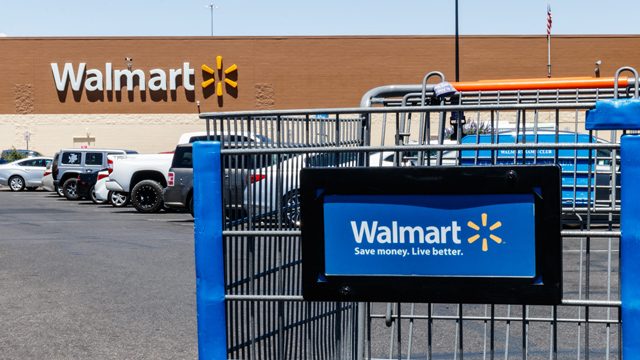SUMMARY
This is AI generated summarization, which may have errors. For context, always refer to the full article.

NEW YORK, USA – Wando Evans, who worked overnight shifts at a Walmart near Chicago, passed away in March from COVID-19. His family blames the company and is suing the retail giant for negligence.
The case, believed to be the first wrongful death lawsuit over the coronavirus, comes amid a burgeoning debate in Washington on whether companies need to be shielded from lawsuits from workers as more businesses resume activities.
Evans, 51, died two days after he complained of coronavirus-like symptoms and was sent home by his supervisor. Four days later, Evans’ colleague at the store, Phillip Thomas, passed away, according to the complaint.
The suit alleges that Walmart did not properly sanitize its stores, respect physical distancing standards, or provide workers with masks and other personal protective gear.
Walmart is “heartbroken” at the deaths and taking action to protect employees, including additional cleaning measures, installing sneeze guards at registers, and limiting the number of customers, a Walmart spokesman said.
“We take this issue seriously and will respond as appropriate with the court.”
On-the-job injuries in the United States typically are adjudicated through an administrative worker’s compensation process at the state level that shields employers from liability, although there can be exceptions for negligence.
Lindsay Burke, a partner at Covington & Burling focused on employment practice, said companies should follow government guidelines to protect themselves legally as they bring employees back into the workplace.
“We are generally advising employers to resume on-site operations in a voluntary and phased approach with new protocols for health and hygiene,” Burke said.
“Employers who fail to follow applicable health and safety recommendations, including increased cleaning measures and adapting social distancing in the workplace, may be subject to claims of negligence or misconduct.”
The US Chamber of Commerce said it favored “providing a safe harbor for companies following CDC (Centers for Disease Control and Prevention) or state/local health department guidance could be helpful so long as the companies’ actions do not amount to gross negligence, recklessness, or willful misconduct.”
Linda Kelly, general counsel at the National Association of Manufacturers, said the protection should be “limited to critical businesses that operate to serve our country during the crisis, and they should apply only during the emergency and for a ‘wind-down’ period after the declared emergency ends.”
Partisan fight
The measures are needed, business organizations say, because health privacy concerns can limit their ability to do contact tracing in the event that an employee is positive for COVID-19.
Some companies have also struggled to find sufficient personal protective equipment due to limited supplies.
These arguments have won support from the Trump administration and most Senate Republicans, including Majority Leader Mitch McConnell of Kentucky, who told Fox News Radio that trial lawyers are “sharpening their pencils.”
But Senate Democrats have pushed back against broad efforts to shield companies from immunity. Labor unions are also fighting the measures.
“It’s absolutely outrageous that employers and corporations are trying to shirk their legal responsibility at the same time they’re refusing to provide protective equipment and paid sick days to their workers,” said Mary Kay Henry, president of the Service Employees International Union.
“Infections are still spreading, especially in communities of color, where people are more likely to work dangerous jobs that cannot be done from home, be denied proper protective equipment, and face barriers to adequate health care. Everyone else is stepping up in tough times – corporate CEOs need to as well.”
Angela Cornell, a law professor at Cornell University Law School specializing in labor, said companies that take appropriate steps won’t have problems.
“The question is how can we ensure that the bad actors out there face sanctions for their conduct because I don’t believe that there will be significant risks to businesses that follow the CDC guidelines,” she said.
“Businesses should do what is right. They should follow the CDC guidelines. They should ensure that employees have appropriate distancing, they should provide face masks, they should have soap in the bathroom; when employees are sick, they should ensure that they have paid time off.” – Rappler.com
Add a comment
How does this make you feel?
There are no comments yet. Add your comment to start the conversation.